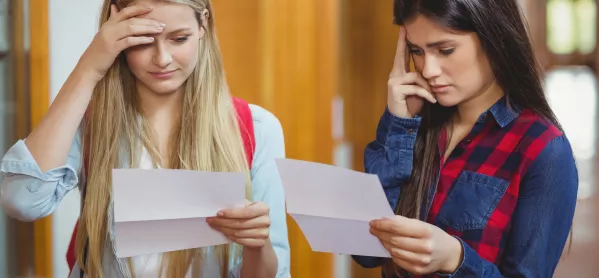SQA exam results day 2020: How to make appeals
Share
SQA exam results day 2020: How to make appeals
The cancellation of this year’s exam diet owing to the coronavirus pandemic lockdown meant the onus was put on teachers to estimate their pupils’ grades. It has been predicted that this could lead to “turmoil” on exam results day this year and that things could get “messy”.
In part, school staff are predicting this because the system usually allows for cramming, but this year that wasn’t possible, so some pupils will feel cheated and will demand answers.
Also, the Scottish Qualifications Authority (SQA) moderation process could lead to teacher estimates being changed. In England, this is already happening, with exams watchdog Ofqual revealing there will be major changes to the results predicted by teachers south of the border.
Ofqual said that if it had gone with teacher estimates, A-level results would have been 12 per cent higher than last year across all grades, and GCSE results 9 per cent higher.
So, here’s what we know about this year’s appeals system in Scotland…
How will the system work this year?
This year, the system will be free and schools will only be able to appeal if a pupil has been awarded a lower grade than the grade estimated by their teacher.
Two post-certification review types will be available: a priority review and a review.
Priority reviews are for candidates with a conditional university or college offer; the deadline for submitting these is Friday 14 August. Other reviews have to be submitted by Friday 21 August.
Related: SQA will not talk to schools before changing grades
News: Scottish students' appeals could lead to lower grades
Swinney: 'A strong argument for reforming exams’
England: Ofqual lowers 'optimistic' GCSE grades at most schools
SQA exams 2021: How will Highers be taken next year?
Who can make an appeal?
Only the school can make an appeal, so pupils or parents wishing to appeal a grade will have to discuss this with their school. The SQA guidance states: “Requests from candidates or their parents and carers will not be accepted by SQA.”
What will a school have to submit in support of an appeal?
The SQA guidance states that before submitting a request for a review, schools need to ensure that “assessment evidence is available that demonstrates performance at a higher grade than that awarded by SQA”. But a secondary headteacher who spoke to Tes Scotland predicted this could be difficult because schools did not always have a lot of material upon which to base their judgement. The head said: “Teacher professional judgment in some areas was heavily used.”
So what evidence will the SQA consider acceptable?
There’s a whole range of evidence it says can be submitted by schools from prelims, to classwork. The SQA also says that a school can include a “candidate commentary” if evidence for a candidate is “sparse”. Any evidence already held by SQA – for example, coursework materials – will be considered as part of any review.
Who examines the evidence and makes the final decision?
Senior subject-specialist SQA examiners will undertake reviews and will make “a holistic judgement on the totality of the evidence available to them, and award the candidate a grade”.
What are the possible outcomes?
There are three possible outcomes: the examiner agrees with the original estimate and upgrades the candidate’s result; the examiner disagrees with the estimate and confirms the grade awarded by SQA; or they disagree with both the teacher estimate and the grade awarded by SQA and apply an alternative, lower grade.
If an appeal is unsuccessful, is there any further recourse for schools and pupils?
No. The guidance states: “The outcome of a post-certification review is an academic judgement. It represents the considered findings of an examiner, taking into account all the evidence available to them, and it is not possible to appeal the outcome on this basis.”
However, the guidance adds: “If you believe there has been a procedural irregularity, you may be eligible to make an appeal on this basis.”
Again, though, it will be up to the school to take that forward.




